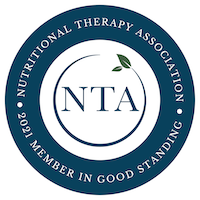If you haven’t already, make yourself an adrenal cocktail as I teach you a thing or two about the adrenal glands.
You’re sipping on your new favorite nourishing drink but don’t know what the adrenals even are! At the least, you know our adrenals are responsible for creating hormones like cortisol, adrenalin, and aldosterone. Read more below.
The adrenal glands are a part of the endocrine system. These endocrine glands sit on top of the kidneys. The two glands sit on each side of the body and has two main parts: the adrenal cortex (outer layer) and the adrenal medulla (inner layer). The adrenal cortex and adrenal medulla both produce hormones needed for daily functioning.
The adrenal cortex produces hormones, including:
Aldosterone
Cortisol
Sex hormones
The adrenal medulla produces stress hormones:
Epinephrine (aka adrenaline)
norepinephrine (aka noradrenaline)
The adrenal hormones are influenced by stress in the body and the environment around us. More than just that, these mighty glands have a powerful influence on our day to day function. They help our body turn food into energy, control our heart rate, manage our blood pressure, manage our stress response, and help to keep the proper balance of electrolytes present in our body.
Breaking it down further, these are the roles of each hormone that the adrenals are responsible for:
- Aldosterone – control the balance of electrolytes in the kidney by keeping sodium in and releasing potassium from the body.
- Cortisol – this hormone is released when stress levels are high or blood sugar levels are too low. It increases fuel available to heart and blood vessels, similar to epinephrine. However, it does take cortisol a tiny bit longer to respond to stress.
- Epinephrine – prepares your fight or flight response when triggered by an internal or external stressful situation. An internal stressor may be your blood sugar going too low. Your body will increase fuel available to help respond. Your pupils may dilate, and you may feel an increase in heart rate.
- Norepinephrine – neurotransmitter used when fight or flight mode is activated. It increases your alertness and can affect your memory, mood, and sleep cycle.
The adrenal glands need extra love each day to properly respond to our day-to-day tasks and keep harmony to each of our body systems.
Some nutrition & lifestyle practices you may want to consider to keep your adrenals happy are:
- Consistent sleep and wake time
- Daily low to moderate impact movement (walking., biking, yoga)
- Avoid caffeine after 2pm
- Spend time outside
- Well-balanced meals
- Avoid blue light up to an hour before bed
- Make self care activities a priority



